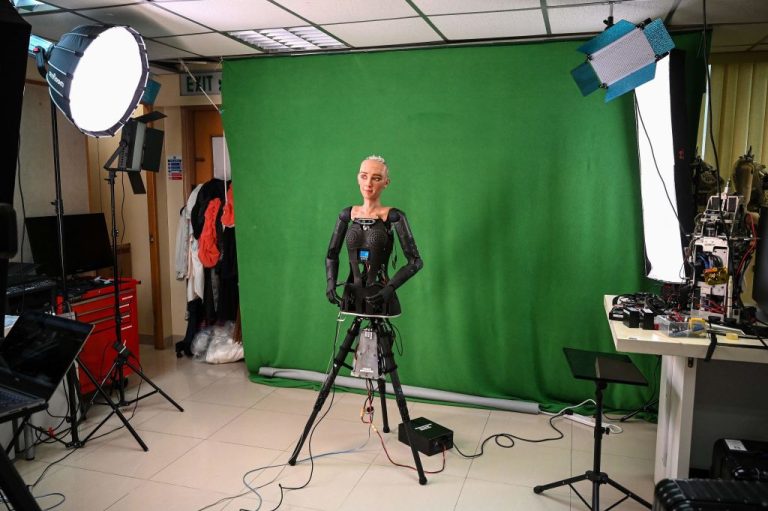The Chinese government has placed formal restrictions on generative artificial intelligence services available to those residing in Mainland China.
An array of seven regulatory bodies led by the Cyberspace Administration of China issued the directive “Interim Measures for the Management of Generative Artificial Intelligence Services” on July 10.
The document is notable in that it places restrictions only on “the use of generative AI technologies to provide services to the public in the [mainland] PRC for the generation of text, images, audio, video, or other content.”
MORE ON THE SITUATION WITH CHINA
- China-based Hackers Breached Secretary Raimondo’s Email Account: Reports
- BBC Says China’s ‘Crackdown on Activism’ Is Making ‘Pride’ Culture Disappear
- Washington Says ‘Spy Balloon’ Made With ‘Commercially Available’ American Technology
State enterprises and research firms are exempted from the legislation so long as they do not provide services to the public.
Success
You are now signed up for our newsletter
Success
Check your email to complete sign up
Measures appear to stem from the Xi’s reign as the document emphasizes “Core Socialist Values,” a phrase associated with his administration and often employed during various campaigns to advance Chinese nationalism on the one hand, but being invoked in activities that push Marxist-Leninism, such as rewriting the Bible, on the other.
South China Morning Post noted in its coverage on the new Chinese Communist Party edict that draft versions of the measures which applied a 10 to 100 thousand yuan ($1,400 – $14,000 USD~) fine for violations were deleted from the live version.
Officials also stated they intend “to take effective measures to encourage innovative development of generative AI,” the outlet reported.
While ChatGPT enjoyed an extremely short-lived period of hype in the English-language sphere, the Xi administration has thus far kept the tool and its competitors Google Bard and Bing AI out of the Mainland internet.
Notable is that not only are the western entities banned, Baidu and Alibaba’s offerings are likewise “either still in trial mode or for business-use only,” SCMP says.
The Interim Measures require that generative AI deployed towards the Mainland public is free of faculties that would classify as “inciting subversion of national sovereignty or the overturn of the socialist system” or “endangering national security and interests or harming the nation’s image.”
“Inciting separatism or undermining national unity and social stability, advocating terrorism or extremism, promoting ethnic hatred and ethnic discrimination, violence and obscenity, as well as fake and harmful information,” are also formally prohibited.
The implications of the above are partially elucidated in an article on the topic by The Washington Post, which cited “analysts” who were concerned that a requirement for companies to “verify the accuracy of the data their AI models learned from” would be “nearly impossible to comply with” as deep learning requires scraping “huge chunks of text from the internet like Reddit and Wikipedia” while both are formally banned in the Mainland.
The comments referred to the draft version of the legislation.
The live version appears to only be concerned with “prevent[ing] the creation of discrimination such as by race, ethnicity, faith, nationality, region, sex, age, profession, or health” during the algorithm design and learning phases.
The move was perhaps foreshadowed when the Chinese government in April made public that Alibaba’s AI offering would also be allowed to operate only if it complied with the “core socialist values.”
How the restrictions manifest in the deployment of AI to the public likely will result in the only thing the CCP is reliable with: casting an environment of censorship.
SCMP stated that one executive for a Mainland firm was careful to demonstrate during a presentation on his company’s chatbot that if a user enters a “sensitive word” that the AI would simply end the conversation.
“Sensitive words” refer most prominently to topics the Communist Party does not want the public to think about or discuss, such as the 24-year persecution of Falun Gong started by now-deceased former Chairman Jiang Zemin, the June 4 Tiananmen Square Massacre, and the 2020 “Heaven Will Eliminate The CCP” (天滅中共) protests in Hong Kong.
The legislation requires providers who utilize “public opinion properties or the capacity for social mobilization” to “carry out security assessments,” a portion that Fortune described as “a policy that appears, at least initially, to keep with existing Chinese censorship efforts of online conversations” in an article titled China Just Gave The World a Blueprint For Reining In Generative A.I. Like ChatGPT and Bard.
In May, Beijing used its Xinhua propaganda mouthpiece to announce that a meeting between high level Communist Party officials, including President Xi, had discussed the need to “improve the security governance of internet data and artificial intelligence” in the focused context of “national security issues,” Associated Press reported.
Commenting on the draft version of the Interim Measures, the Carnegie Endowment for International Peace surmised that the legislation “demonstrates an obvious intention to strengthen government control over China’s technology and information ecosystems.”
“The draft’s vague language would give regulators substantial leverage to impose their will on tech companies,” author Matt O’Shaughnessy added.
The coming implementation of the measures was confirmed by Tesla CEO and Twitter owner Elon Musk during his June visit to the Mainland to tour his Shanghai Gigafactory for the first time since the Wuhan Pneumonia pandemic broke out in late 2019.
Reuters quoted Musk as stating, “It’s worth noting that on my recent trip to China, I went to senior leadership there. I think we had some very productive discussions on artificial intelligence risks, and the need for some oversight and regulation.”
“And my understanding from those conversations is that China will be initiating AI regulation in China,” he added.
Musk was formally received by Foreign Minister Qin Gang upon his arrival in the country.













